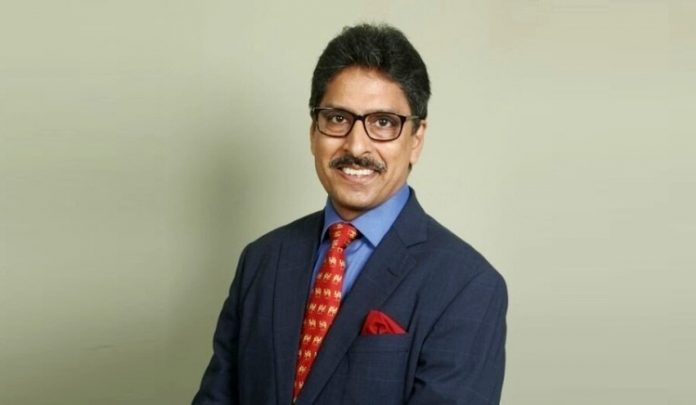
Rendezvous with, Prabir Jha, CEO, Prabir Jha People Advisory
Prabir Jha, an alumnus of St. Stephen’s College, Delhi, and XLRI Jamshedpur is the Founder & CEO of Prabir Jha People Advisory.
Combining an impeccable academic and professional record, in his stint as a civil servant, he handled the entire gamut of HR & IR issues of the Indian Ordnance Factories. On his switch to the corporate world after almost 10 years in the government, his initial HR years were with Thermax & Tech Mahindra.
Thereafter, Prabir served on the executive team as the Global CHRO at two NYSE-listed Indian majors, Dr.Reddy’s and Tata Motors before moving to lead HR at another Fortune 500 giant as the Group CHRO of Reliance Industries Ltd.
Prior to starting his own advisory firm, he was the President & Global Chief People Officer at the pharma major, Cipla.
Q- How do you see the emerging Role of HR leaders amidst the COVID-19 crisis?
HR has a unique opportunity of being at the forefront of fighting the war against the COVID. In the immediate term, they are part of the “COVID Warrior” community. Working on the immediate crisis management agenda of implementing a lockdown at the workplace, enabling the business continuity plans on the partial lift, ensuring employee connect in a dramatically changed work-from-home reality have all been common-place demands on HR. In addition, the meltdown in business has also had the Oberoi’s responsibility of right-sizing the organisation, including its contractual workforce. And then again getting the talent availability back as things got better. To me, this has been a huge part of the business of HR leaders. Rolling out revision letters, or helping implement the communication on reward delays or keeping regular salaries going have all been jobs well done. And I compliment the HR leaders for ensuring a sense of sensibility in the mad chaos we have all lived in the last some months.
Having said that, I am not sure I would say that I saw many examples of HR leaders setting the agenda. I would love to see them use the crisis and after to get their organisations truly leverage disruption for transformation. Organisation design in many cases needs a relook. No better time than now. Many blockers in the system needed to go much ahead of the rank and file. Not sure they were able to get that agenda on the table. I would have suggested a blueprint on the table for shifts in the culture to be made. What would be things you would change in the culture to make the organisation ready for the New World? What talent and skills shift would you push for?
Maybe it is the preoccupation with the crisis but HR leaders must use COVID as an opportunity for them to move from transactional order takes to strategic agenda-setting. I am afraid in many places we seem to have missed the opportunity again.
Q- Most of the companies are adopting Work from Anywhere, at Anytime policy. In your opinion what should the essentials clauses of hybrid workplace policy?
First, there is too much stereotyping on Work From Anywhere. Not every job lends itself to work from anywhere. You cannot manufacture or do laboratory operations from home. Also, work from anywhere cannot be work at anytime for everyone. We need to ensure that work does not cause fatigue and stress worse than the travel commute one is spared off. There has to be a philosophical belief snd practice of defining “core hours”. I know of too many people who say their hours have actually got terrible impacting their psychological wellness.
I would suggest the discipline of respecting core hours of work and mandating compulsory days off from work with no email or phone access to work. Even the client engagements have to respect some time off-limits. Very often the inability to say no to a client by a leader pushes a poor work culture down the line.
Q -What are the Allowances and benefits that can be offered to WFH Employees?
Clearly, some support with internet expenses must happen!! Possibly, some support towards ergonomic improvements at home. Since leave needs have some down in the WFH times, it is useful to mandate some days off for people to switch off and rejuvenate. Better support for family interests so that they feel recognised and included.
Q- How can industries restructure the compensation part for employees during the current crisis?
A lot of this will fundamentally depend on the rewards philosophy of the company. Also, how bad is the companies business impacted in the crisis. Finally, the demographics of the workforce. For most, safe jobs and assured compensation to take care of committed monthly expenses would matter the most. You could roll back discretionary perks and travel costs to buffer the monthly compensation for most employees. My personal view is that any rolling back of compensation should be only for senior levels. However, if annual bonuses are impacted or not triggering threshold levels, so be it. The structure of rewards has to be “ fair to the company, fair to the employee”. Some jobs have a lot more sales incentives as a big part of their compensation. If that is impacted, so be it. Only if there were to be a call to save jobs but re-do heads of fixed pay, I would look at heads other than basic pay, housing, and retrials.
Q- How do you see the future of jobs in FY21?
Of course, it will vary by industry and market. But I would wager that the gig reality will grow. Both companies and individuals would benefit: one will gain expertise but keep flexibility, the other will have a combination of options and retain the flexibility to earn rewards, more or less. The other shift that I see will be some flattening or organisations. As more digital culture sets in and people experience more intuitive technology offerings, spans of control could get wider. Thus the pressure on middle-level jobs could get intense. I think many more jobs could get created in last-mile delivery, infrastructure & capacity building, and digital entrepreneurship. The crisis will create a new eco-system that may usher in more network of support rather than the classical company -anchored careerist jobs. But the caveat stays: no one still knows how the future will get rocked and shocked again!
Q- Any concluding remarks?
These are turbulent but exciting times. I believe nothing could have shown us the mirror better. Even if we survive the crisis and keep our jobs, it shows how vulnerable we are. Reskilling, widening networks, more coaching support, reinventing ourselves, and being open to newer possibilities will all happen. HR leaders must thus move from the pedestrian implantation of here and now an in-company effort to reimagining a new ecosystem. It will demand a lot of change from other leaders. HR must show courage to question the past, howsoever protected, and help paint a future, howsoever impossible and intimidating. This could be the turning point that it must not miss if it seeks to keep its tryst with destiny!
Thank you, Prabir!








